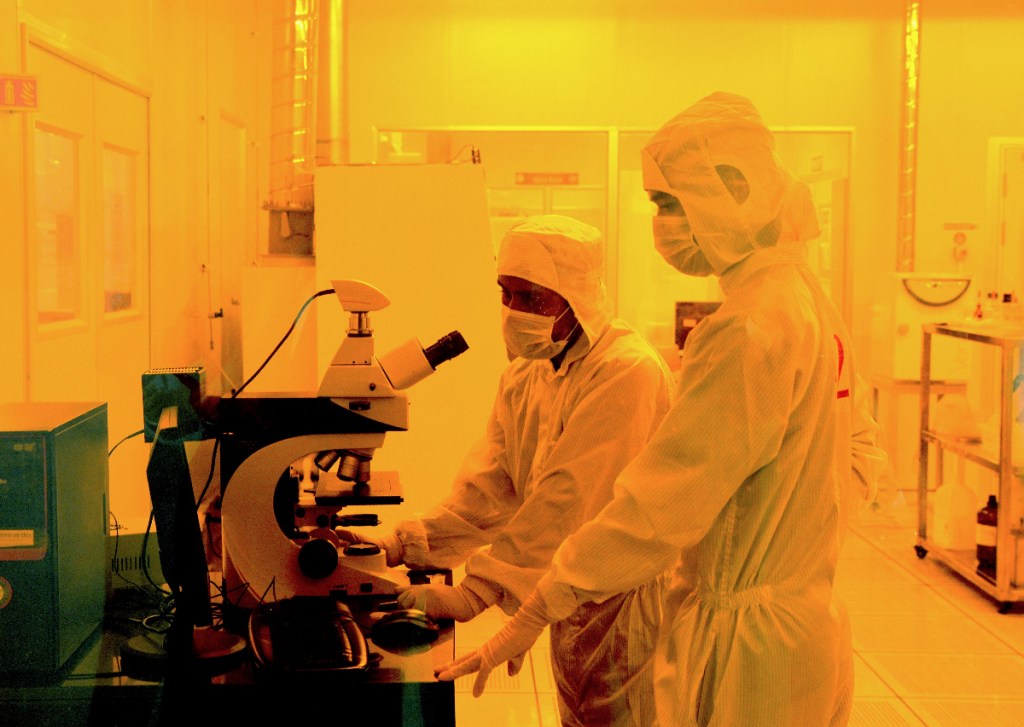India has approved allocating up to $15.2 billion (1.26 trillion Indian rupees) to build three new semiconductor plants, including its first semiconductor fab facility — part of the country’s big bid to take on China, Taiwan and other countries in the chip race.
Significantly, although AI chips are very much the talk of the industry right now, none of the three plants focus on that area of the market, aiming instead for more traction in general-purpose applications.
On Thursday, the Indian cabinet approved the country’s first semiconductor fab facility set up by the salt-to-software conglomerate Tata Group and Taiwan’s Power Chip, which will be established in the Dholera region of Gujarat. The fab facility expects to have the capacity to produce 50,000 wafers per month, and it aims to manufacture 3 billion chips annually for a variety of market segments, including high-power computers, electric vehicles, telecom and power electronics.
The Indian IT minister Ashwini Vaishnaw told reporters at a media briefing in New Delhi that the construction work for the semiconductor fab will start within 100 days.
“A typical semiconductor fab, construction is a three-four-year time frame. We will be compressing it significantly [sic],” the minister said.
Alongside the semiconductor fab, the Indian government has approved the investment of $3.2 billion in a semiconductor assembly, testing, marking and packaging unit planned to be set up in the northeastern state of Assam by Tata Semiconductor Assembly and Test.
This will be the country’s third semiconductor unit and will be able to produce 48 million chips per day. The unit will cater to seven segments: automotive, electric vehicles, consumer electronics, telecom and mobile phones.
The Assam unit will supply chips to a “wide spectrum of companies,” including Indian, American, European and some Japanese companies, Vaishnaw said.
“It will be a very good export as well as domestic use,” he noted.
In addition to the two plants, the Indian government has approved the investment of $916 million from Japan’s Renesas Electronics and Thailand’s Stars Microelectronics to work with the Indian company CG Power to produce specialized chips in Sanand of Gujarat. It will manufacture chips precisely for niche sectors, such as defense, space, electric vehicles and high-speed trains.
The specialized chip facility will have a daily production capacity of 15 million chips.
These are not India’s first efforts to boost its domestic semiconductor sector. For years, India’s had its sights set on being a bigger player in the market, but some of its bigger efforts have failed to generate much interest.
In 2021, the Indian government announced a $10 billion incentive program to gain the attention of chipmakers and display manufacturers and convince them to set up local facilities in the country by offering incentives of up to 50% of capital expenditures to companies establishing domestic manufacturing projects. That scheme had to be modified last year after poor take up from international companies.
The reasons for the lack of engagement ranged from having a complicated application process, through to a lack of pre-existing ecosystem: the world’s biggest players were skeptical that India had the right mix of skilled labor and other conditions to build and operate these businesses.
We’d heard that the government was trying to convince TSMC — the world’s largest chipmaker — to get on board, and that it’s pushing companies like Qualcomm, MediaTek and Intel to also lay out more plans for the semiconductors in the country. Notably, all these were absent from today’s announcements.
But overall, when you consider the long road ahead for building chipmaking ecosystems in the country, it’s perhaps not a surprise that AI chips are not really on the agenda today.
That is not the full story, though. There are also a number of other semiconductor developments in the works.
The IT minister said the Indian government had outlined $7 billion in incentives for the three newly announced semiconductor plants and the $2.75 billion Micron facility, announced during Prime Minister Narendra Modi’s visit to the U.S. last year. The U.S. company had committed an $825 million investment for the facility.
India more generally is looking to attract foreign semiconductor manufacturers by offering billions of dollars in incentives. Companies including Foxconn and AMD have already announced their investment plans for setting up local facilities.
Vaishnaw said the government plans to design its semiconductor program for 20 years. The country also has around 300,000 design engineers, who are already designing chips for global companies.
“You will see various other semiconductor initiatives by the government, at least, in the near future,” Vaishnaw stated.






























Comment